Welcome Gardeners! Looking for a good shade tree?
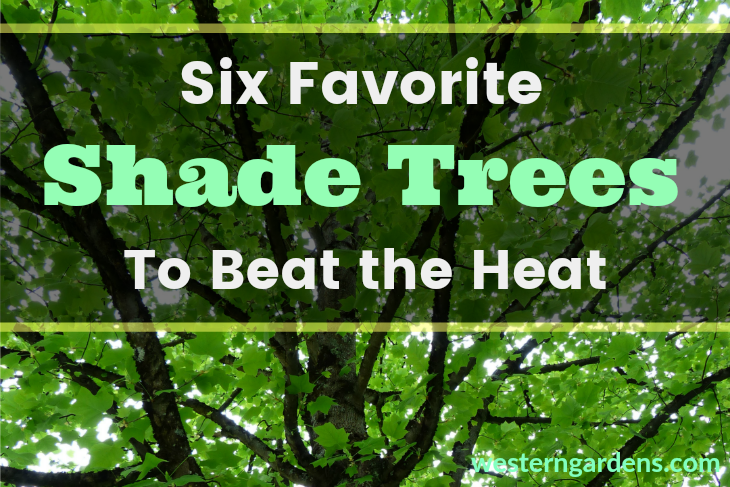
With the heat of summer quickly approaching, check out our six favorite shade trees that will help you stay cooler as you enjoy being outside longer. These favorites are easy to care for and do well in our mountain desert climate once established.
Favorite Shade Trees List:
Autumn Blaze Maple (Acer x freemanii)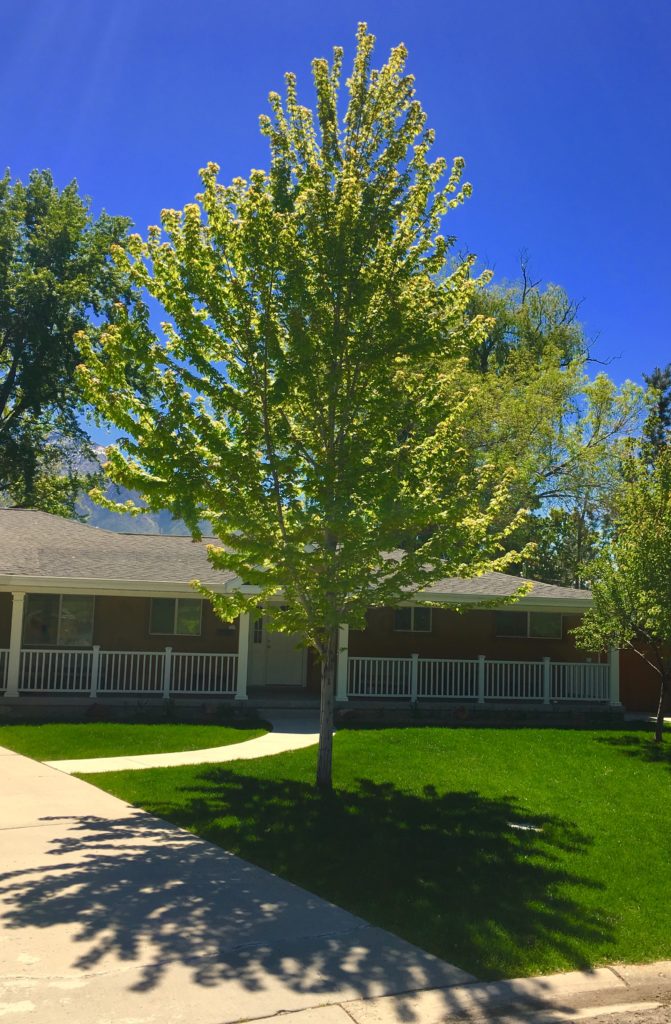
Our number one favorite shade tree Autumn Blaze Maple is a cross between a red and a silver maple. It is fast growing (up to 3ft per year), tolerates a variety of soils and is easy to care for. In the fall, the leaves turn bright red for which it gets the name “autumn blaze”. This maple variety can grow up to 50 feet tall and 40 feet wide and prefers full to part sun. This tree is a great option if you’d like a fast growing, easy to care for tree with show stopping colors in the fall. An easy pick for our top favorite shade trees list.
Japanese Zelcova (Zelkova serrata)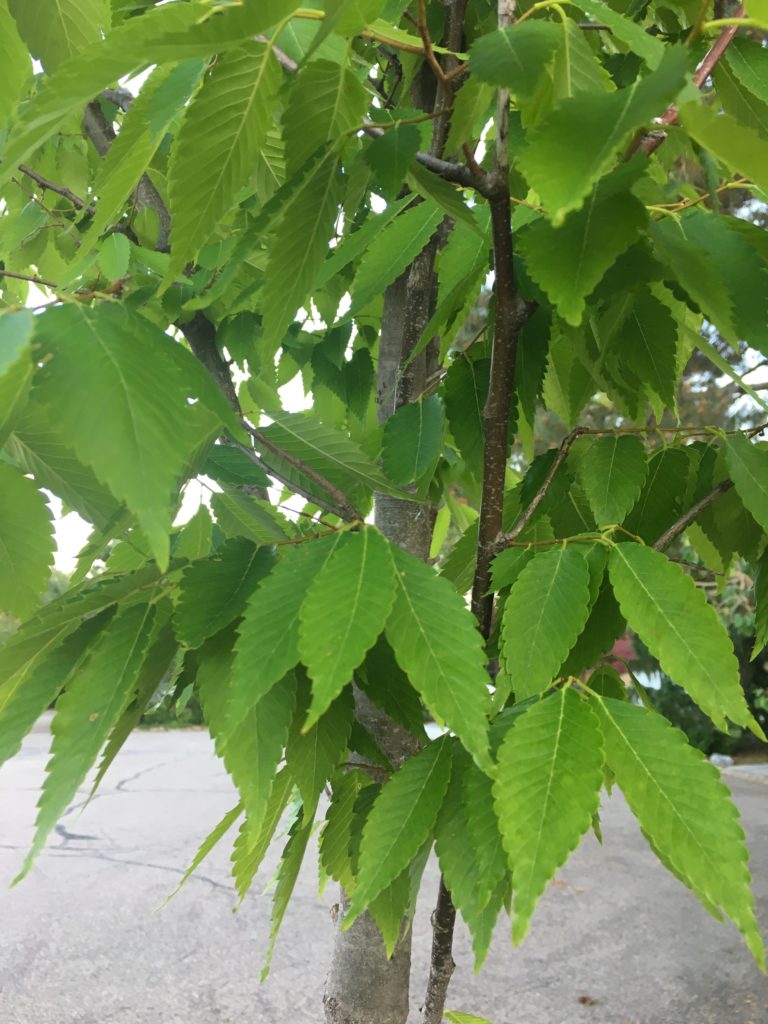
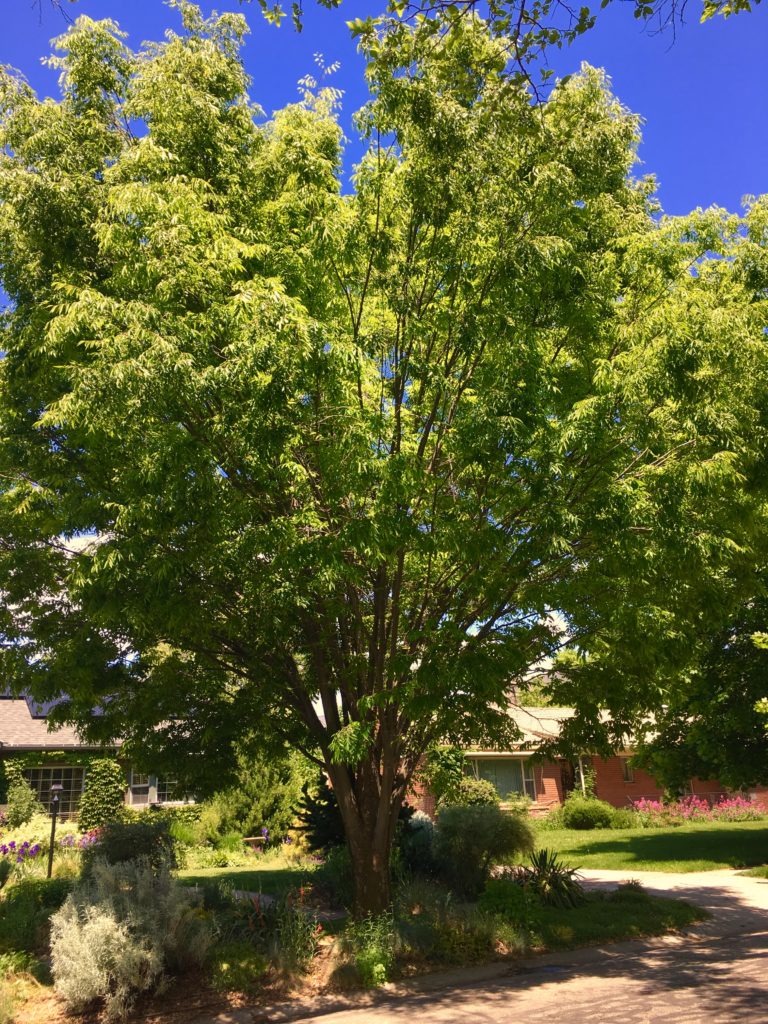
The Japanese Zelcova is an underutilized species that has started to become more popular. It is considered a shade tree, but also showcases an ornamental quality with its vase like shape. Zelvocas look similar to an elm, but are disease and pest resistant. Once they are established, they are also drought tolerant. Mature height is around 60 feet tall with yearly growth between 1-2 feet. It does best in full to part sun. Zelcovas are ideal for planting by driveways or side walks because their roots will not disrupt the concrete like other trees root systems. The leaves also showcase deep red and orange hues in the fall. A beautiful choice and will be part of your favorite shade trees to have in your yard.
Honeylocust (Gleditsia triacanthos)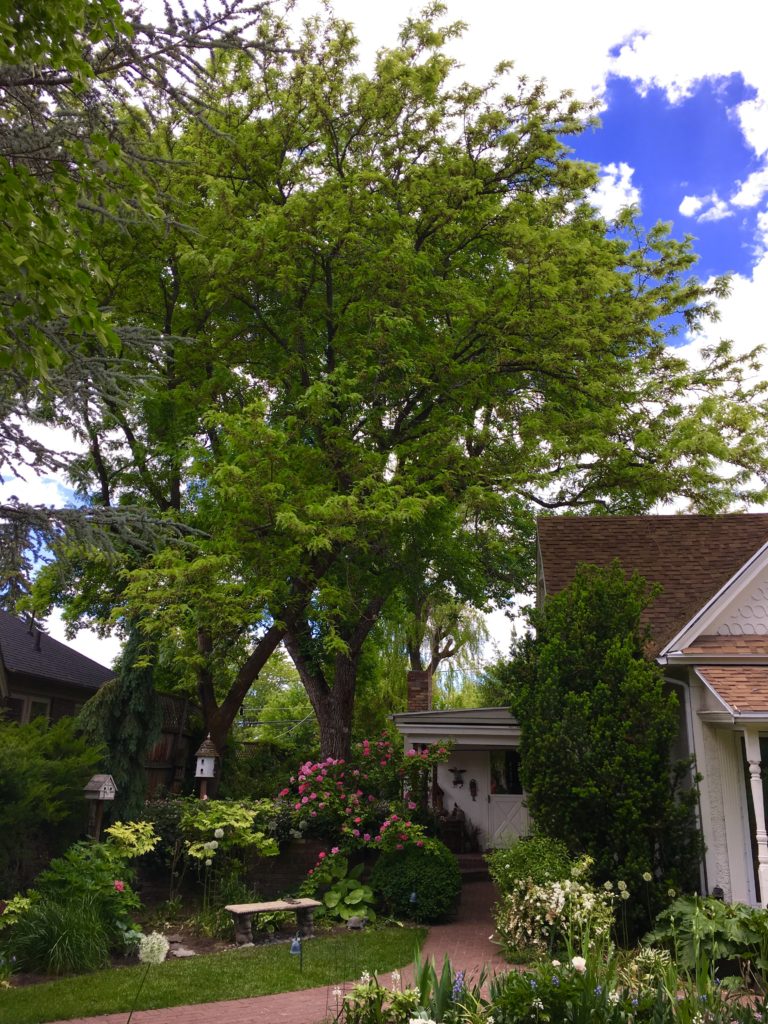
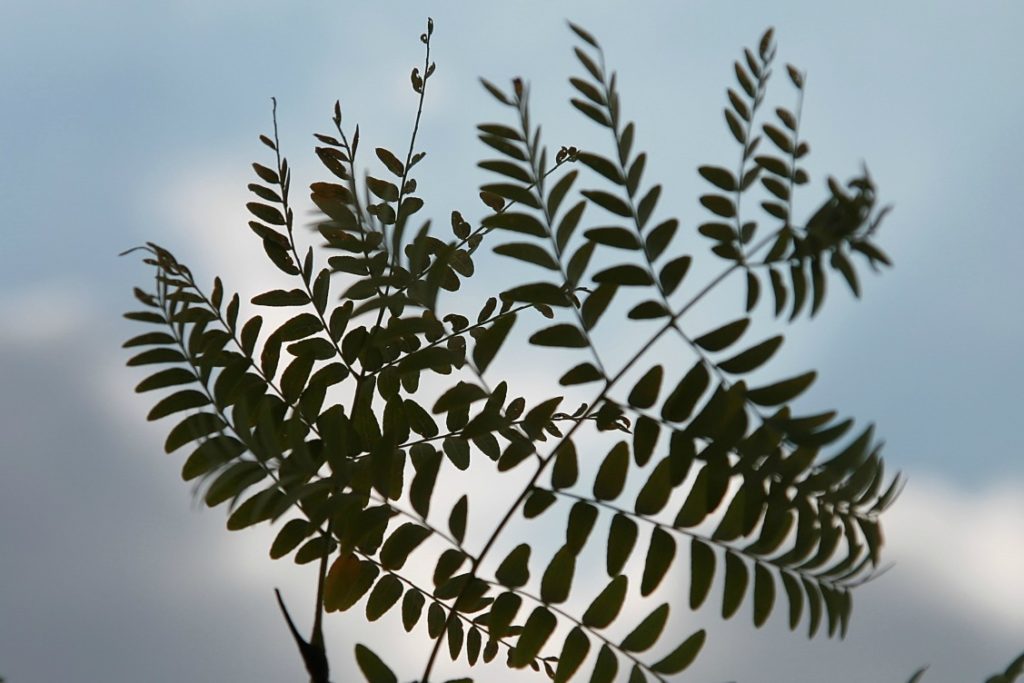
Photo by: David J. Stang – WikimediaCommons
Honeylocust, both thorn and thornless, is yet another tree that is fast growing and tolerant of many soil types. Mature height is between 30-70’ tall, and grows up to 2 feet per year. It provides lightly filtered shade. Honeylocust have small delicate leaves that turn a bright yellow in the fall and then blow away, leaving very little to rake up. They can also be used to stabilize hillsides and control erosion.
Ginkgo (Ginkgo biloba)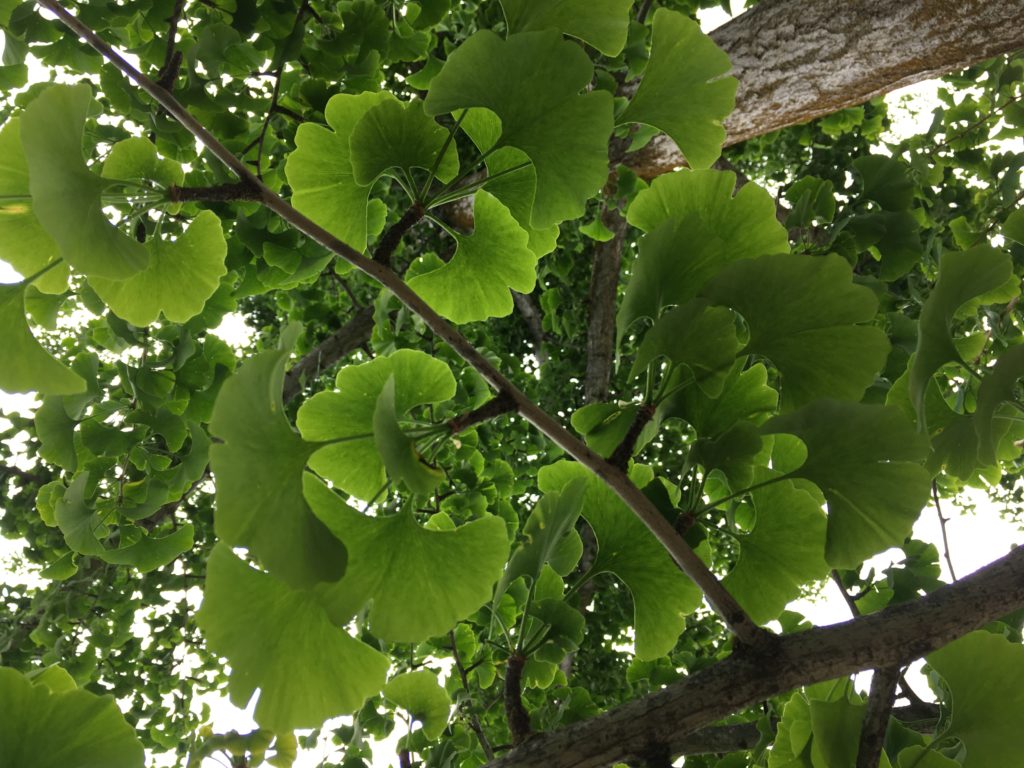
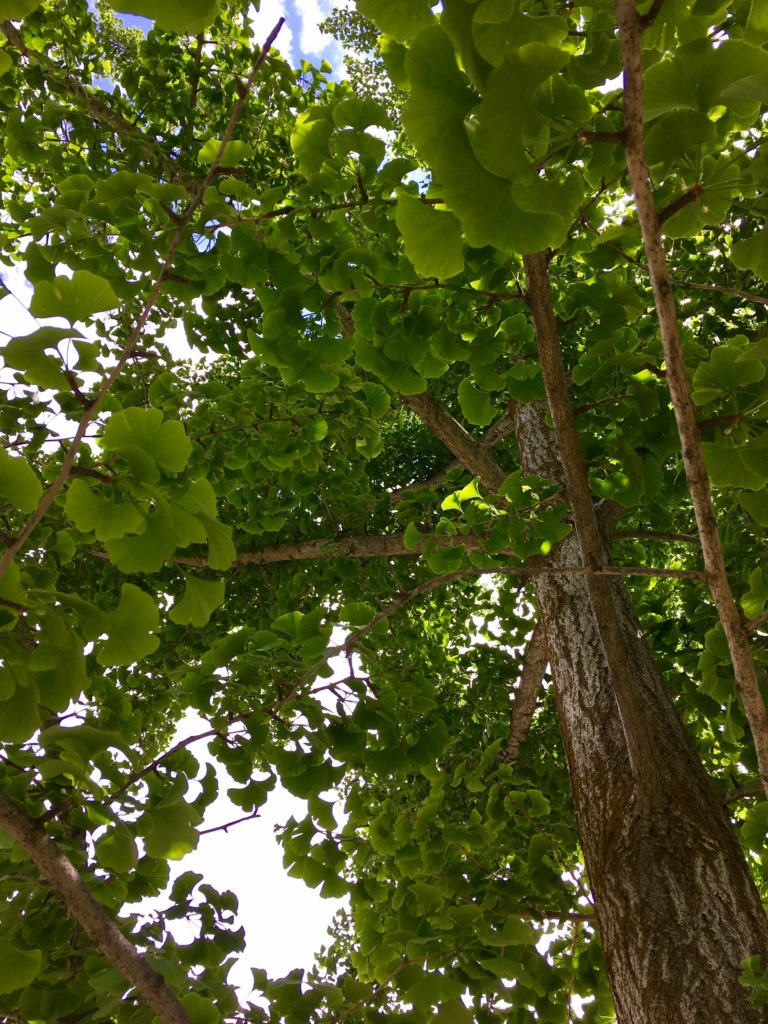
The Ginkgo is an underutilized species here in Utah, and has many unique characteristics to it. It is actually considered a living fossil, and some trees can live as long as 3,000 years! It grows 25-50 feet tall in maturity with a vase-like canopy reaching 25-30 feet wide. Yearly growth rate is 13’’-24’’ per year and tolerates a variety of soils. It is best if planted in full sun to part shade. This is another tree that grows well next to driveways and concrete. One of the unique features of this tree is its fan shaped leaf. Female trees do bear a fruit that can be messy, so ask your local gardening expert to pick out a male tree.
Eastern Redbud (Cercis canadensis)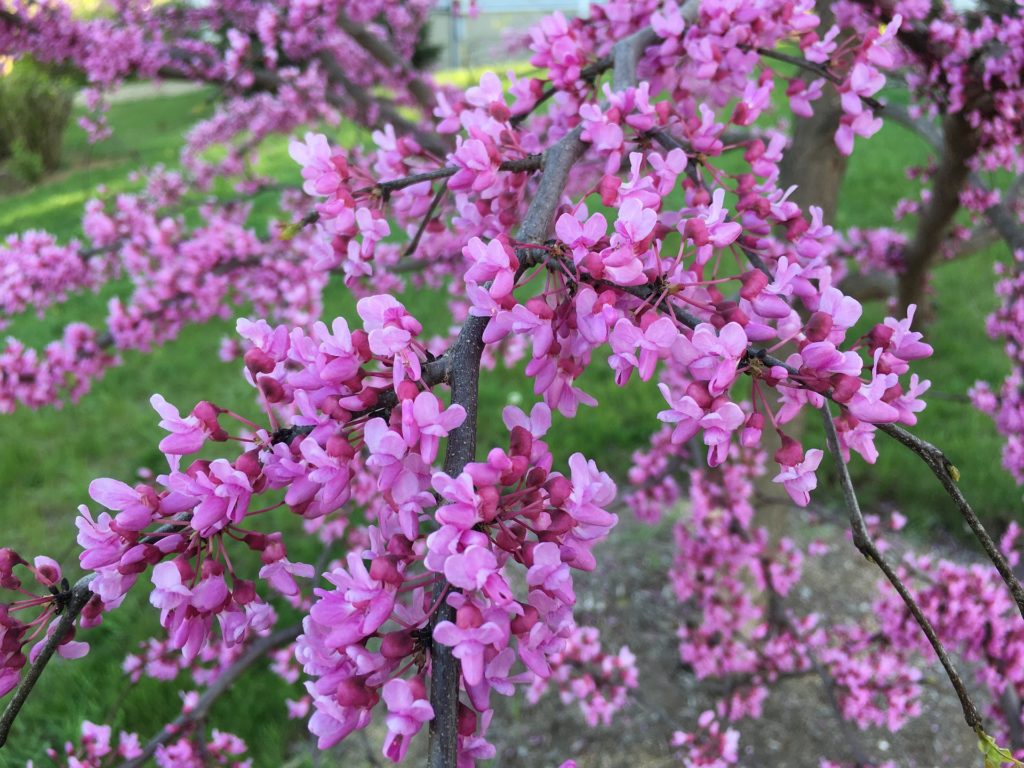
The Eastern Redbud is the magenta flowering beauty blooming in spring. It’s the first tree we see in spring which makes people say, “Wow! Look at that tree’s color.” It’s unique green heart shaped leaf turns yellow in the fall. As a moderate grower, it will peak up to 20-25 feet tall and 20 feet wide. It is tolerant of most soils and likes even moisture throughout the season, being less drought tolerant than our other favorite shade trees. This native Eastern American tree offers four seasons of unique beauty, following up in winter with a beautiful branch structure and course bark.
Tulip Tree (Liriodendron tulipifera)
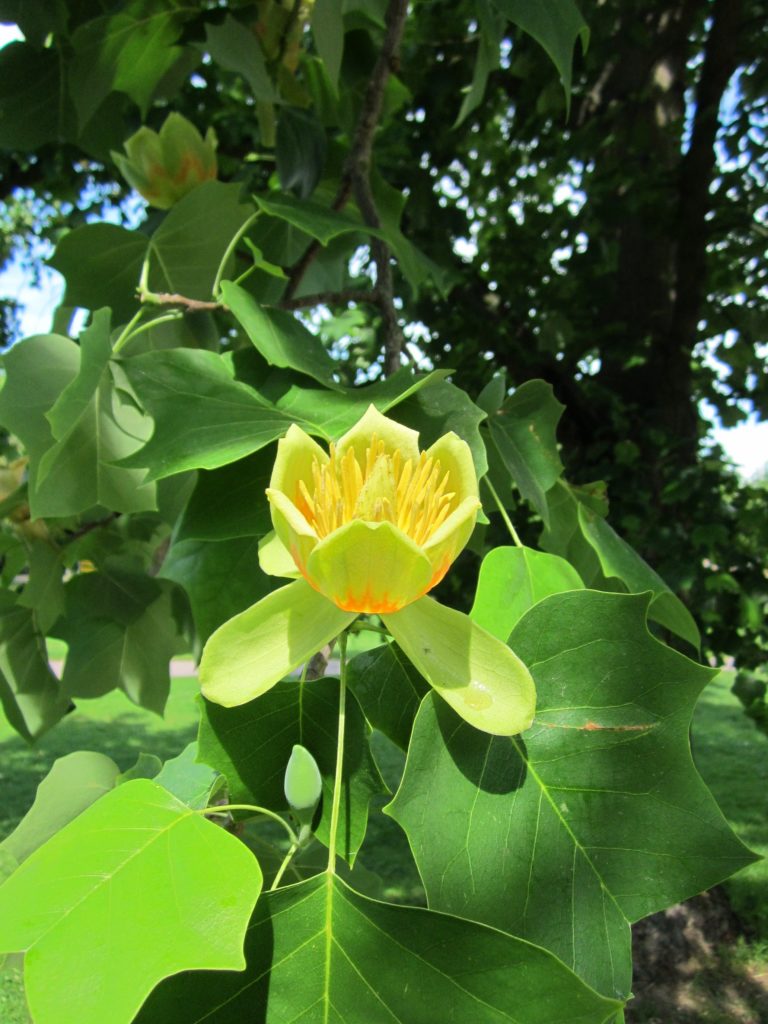
Photo: Pixabay
Another native North American tree, the Tulip Tree is a wonderful majestic beauty. Considered a perfect stand-out front yard tree, it also is often used for shade in the back yard. The wonderful shade tree is long lived, fast growing, tolerant of most soils, and very cold hardy. The yellow tulip like bloom opens in late spring and it’s leaves turn yellow in autumn. Be ready for its unique structure to reach 40-60 feet high and be 15-25 feet wide. Once established it is drought tolerant.
Vanessa Roush
Latest posts by Vanessa Roush (see all)
- Gluten and Dairy Free Peach Cobbler - August 26, 2017
- Six Favorite Shade Trees to Beat The Heat - August 17, 2017
- How to Create a Green Privacy Screen - August 10, 2017